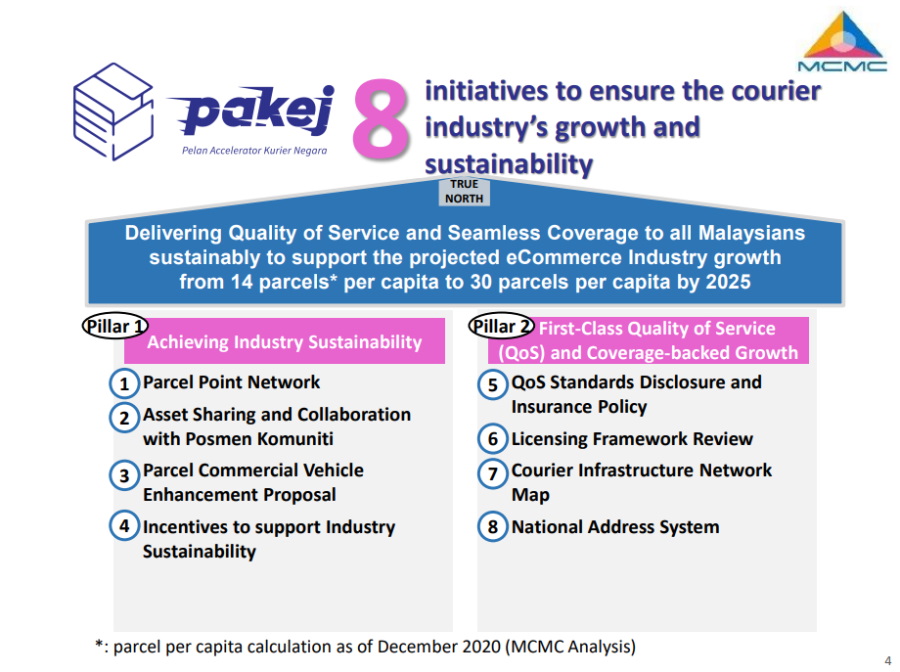In general, PAKEJ is a 5-year roadmap that is meant to tackle several issues that are haunting the courier industry at the moment. For example, the average time for a parcel to be delivered to consumers has now increased from 2.1 days to 4.6 days. At the same time, the number of complaints from consumers has increased as well.
Furthermore, the growth among the players have stagnated and their profits are apparently on the downward trend despite the increasing number of deliveries being made during the ongoing Movement Control Order (MCO). As for NAS itself, it is being seen as a solution to the issue whereby recipients are not able to provide the exact address of their home or premise. As an example, they might use a landmark such as a particular lamp post as the address for their home for deliveries which is something that we can imagine taking place in rural areas.
It could be that there are several houses located nearby that specific landmark which could lead to some difficulties for the couriers, as they might not be able to accurately identify the actual home or premise of the receiver. In some villages, the provided address could just be a shop or the sole kedai kopi in that area. During PAKEJ’s media briefing earlier today, Chairman of MCMC, Dr Fadhlullah Suhaimi Abdul Malek said the general concept of NAS could mirror how a telephone number is being used to identify a specific user. However, he was also quick to point out that the work on this initiative is still in the early stages and there is plenty of work that needs to be done. Interesting enough, he revealed that Pos Malaysia has tried to solve this issue before but it has turned out to be quite challenging to them. Now that the government and local courier industry are working together as they begin to put the PAKEJ roadmap into motion, Dr Fadhlullah hopes that they will be able to turn NAS into a reality much sooner. (Reference: National Postal and Courier Industry Lab Report / MCMC – [pdf]. Image: Pos Malaysia / Facebook.)


